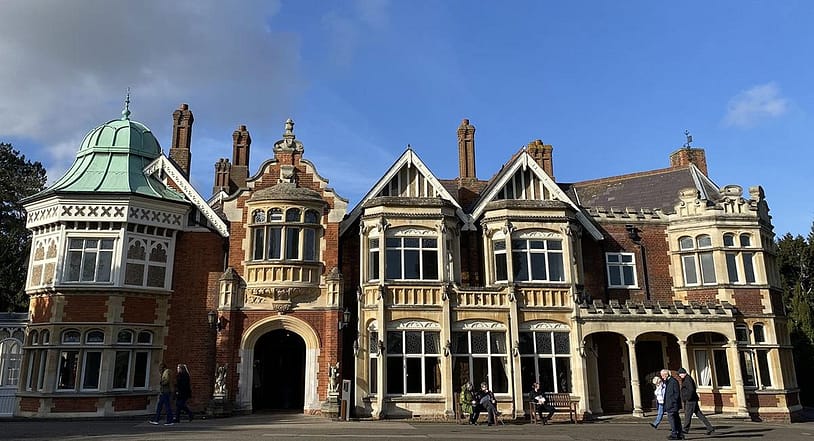Bletchley Park, famed as the crucible of codebreakers who turned the tides of World War II, is set to host the world’s inaugural artificial intelligence safety summit. In a press release on Thursday, the U.K. government announced its intention to organize this landmark gathering, bringing together international governments, leading AI companies, and research experts. The focal point of discussions will revolve around the “secure development and utilization of cutting-edge AI technology.”
Scheduled for November 1 and 2, the event aims to address the challenges associated with AI, particularly those emerging at the forefront of its advancement, and to foster dialogues on internationally coordinated strategies to mitigate these risks.
U.K. Prime Minister Rishi Sunak remarked, “To fully harness the immense potentials of artificial intelligence, we must confront and manage the associated risks to ensure its safe evolution in the years to come.” Sunak further emphasized the synergy between international collaborators, the thriving AI industry, and the knowledgeable academic community, asserting that this cooperation is key to expeditiously securing global action for the responsible and secure advancement of AI worldwide.
Participating entities and attendees, whether governmental bodies, companies, or researchers, remain undisclosed at this point.
In the competitive landscape of AI, the vanguard is predominantly occupied by major U.S. technology corporations such as Microsoft, a prominent supporter of OpenAI – the creator of ChatGPT, Google, the proprietor of the generative AI chatbot Bard, and Meta, responsible for the open-source large language model Llama.
The United Kingdom houses several prominent players in AI research, development, and commercialization, including DeepMind, the country’s AI laboratory, and Synthesia, a digital media platform enabling the creation of AI-generated videos.
The historic significance of Bletchley Park cannot be overstated, as it served as the operational center for the Codebreakers during World War II. In 1941, these brilliant minds, led by the visionary Alan Turing – a mathematician, computer scientist, and cryptographer – successfully decrypted the secret Enigma Code used by the German government for critical ground-to-air operations on the Eastern front. Turing’s contributions have solidified his status as a pioneer in theoretical computer science and AI.
In recent times, the U.K.’s tech sector has faced challenges, marked by declines in venture capital investments. Data from VC firm Atomico reveals a 57% drop in total capital inflow into the U.K.’s tech industry during the first half of 2023, amounting to $7.4 billion.
Undeterred, the U.K. is actively positioning itself as a global technology leader, launching initiatives to embrace innovations like digital currencies, blockchain, and the emerging “Web3.”
AI, in particular, has emerged as a major priority for the country. In June, Sunak asserted that the U.K. seeks to become the “geographical home of global AI safety regulation.” Nevertheless, the nation faces substantial competition from giants like the U.S. and China in the AI arena.
The U.S. stands tall as the undeniable global AI leader, with substantial investments from major corporations driving the technology forward. China, too, is making significant strides in AI, with companies like Alibaba, Tencent, and Baidu introducing their own generative AI chatbots. Beijing has even implemented regulations to govern such services.
AI is rapidly permeating various sectors, from healthcare to finance, and cybersecurity. Generative AI algorithms, in particular, introduce several societal risks, including potential job displacement, misinformation propagation, and cyber vulnerabilities.




